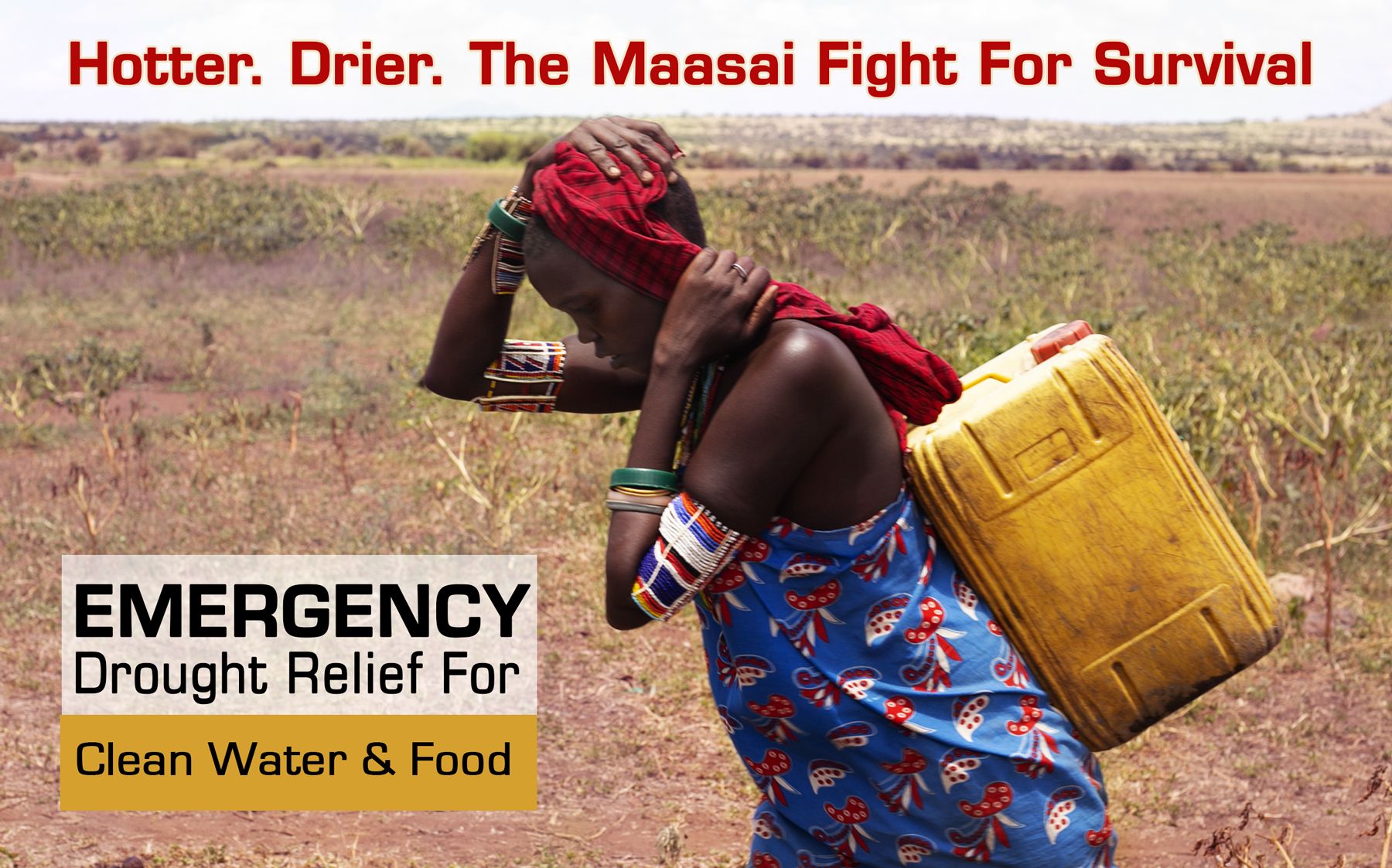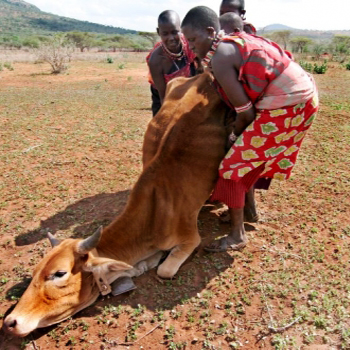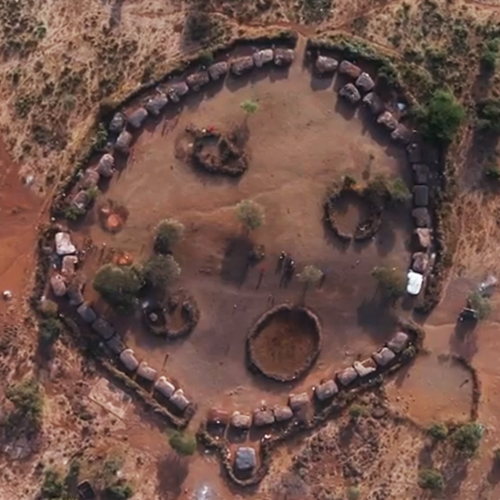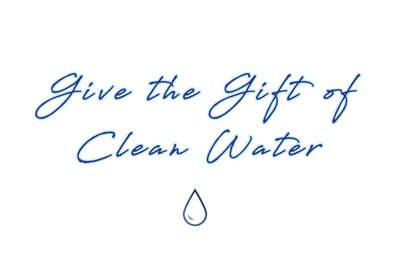
The Maasai are on the frontline of a new crisis: Climate Change.
The climate in Kenya is getting hotter and drier year after year, and the Maasai communities are being pushed to the edge of starvation for their families and livestock. As a result, the land they have been living on for generations is being sold leaving many homeless. Without their ancestral grounds, the Maasai culture will be lost and thousands will be driven to extreme poverty or perish. Providing food and water will protect the Maasai people, local forests, wildlife and culture.
EMERGENCY WATER AND FOOD are needed for the Maasai.
Insufficient rain for the last 12 months is causing 1+ million people in Kenya to face food insecurity and in urgent need of water and food relief. The government of Kenya reports the situation is likely to get worse if the rainy season delays any longer.
The Maasai have been navigating droughts for centuries. They have lived through barren times when the rivers run dry and cows wither day by day until their bones are scattered across the plains under the acacia trees. They have watched their family members die due to these horrific droughts. However historically after one year of drought, the climate returns to back to normalcy for a few years. It rains enough to replenish herds, repay debts, drink milk, and eat meat a few times each week. Although, due to climate change, Kenya is facing the 4th consecutive year of drought. The Maasai traditional lifestyle is unable to cope with these recurring disasters causing instability within communities, leaving them vulnerable and unable to sustain their ancient culture ways.
For the Maasai – cattle is everything! Every part of the cow is used daily to provide food, shelter, clothing, medicine, currency, status, and used in every ceremony. Hundreds of livestock have perished due to lack of water and pasture. The future for the Maasai is uncertain.
Devastating trends show Maasai livestock deteriorating, threatening the survival of their livelihoods. Milk is the staple of the Maasai diet. Milk production is decreasing, leaving Maasai mother's afraid of how they will feed their children. Maasai men rush to the market to sell their cows and goats to purchase food, but there aren't enough buyers to meet the demand, leaving them hopelessly walking long distances searching for green pastures and water fighting for survival.

Photo Credit: Evelyn Hockstein

The Maasai are looking for a quick fix, often leaning to the only option they have – to sell their land. Data shows that once the Maasai sell their land they quickly become displaced into foreign areas, adopting new lifestyles for survival, trapped in the cycle of extreme poverty. The Maasai and their traditional culture face extinction.
With hunger and poverty on a rise, it is becoming harder for the Maasai to sustain their livelihoods and protect their unique ancient culture that once thrived.
How Can All of Us Help?
We know the droughts will continuing to increase – we cannot stop this with climate change on a rise. MCV has a successful model to provide a short-term and long-term solutions to provide clean water and food security to Maasai communities.
Emergency Relief
MCV provides emergency relief by trucking in water and filling water storage tanks to deliver life-saving support to keep Maasai community members alive and healthy during dangerous droughts. We also provide emergency food assistance to those suffering from hunger.
Currently, we have 2 villages (approx 5,000 people) in urgent need for emergency water and food relief. $8,000 USD will provide emergency food and water for these villages until the rainy season.
Long-Term Sustainable Solutions
There is plenty of fresh groundwater however, it requires drilling and installing water distribution systems. To date, MCV has provided sustainable clean water solutions to 11,000+ Maasai people to provide long term solutions. But this is literally just a drop in the bucket for a population of 1.5 million Maasai people spread across East Africa. We have identified villages where Maasai women and children are forced to walk 10+ miles in search of contaminated water for their survival.
Once our water projects are completed, we support communities to grow scale gardens to provide food for the community. We also install water troughs for livestock to have adequate water during droughts.
Currently, we have 5 villages (approx 15,000 people) on our waiting list in urgent need for permanent clean water solutions. The cost to drill each water well ranges from $30,000 – $60,000 USD based on the depth of the well and remote location. If you are interested in drilling a well, please contact us for specific questions.
Donate today to save lives and sustain Maasai culture!
To build a water well in your name, or if you have specific questions, please contact Jessica Censotti at email: President@mychosenvessels.com or call: (844) 628-1414. If you need assistance making a donation, please call or click here to donate through PayPal – CLICK HERE DONATE ON PAYPAL

